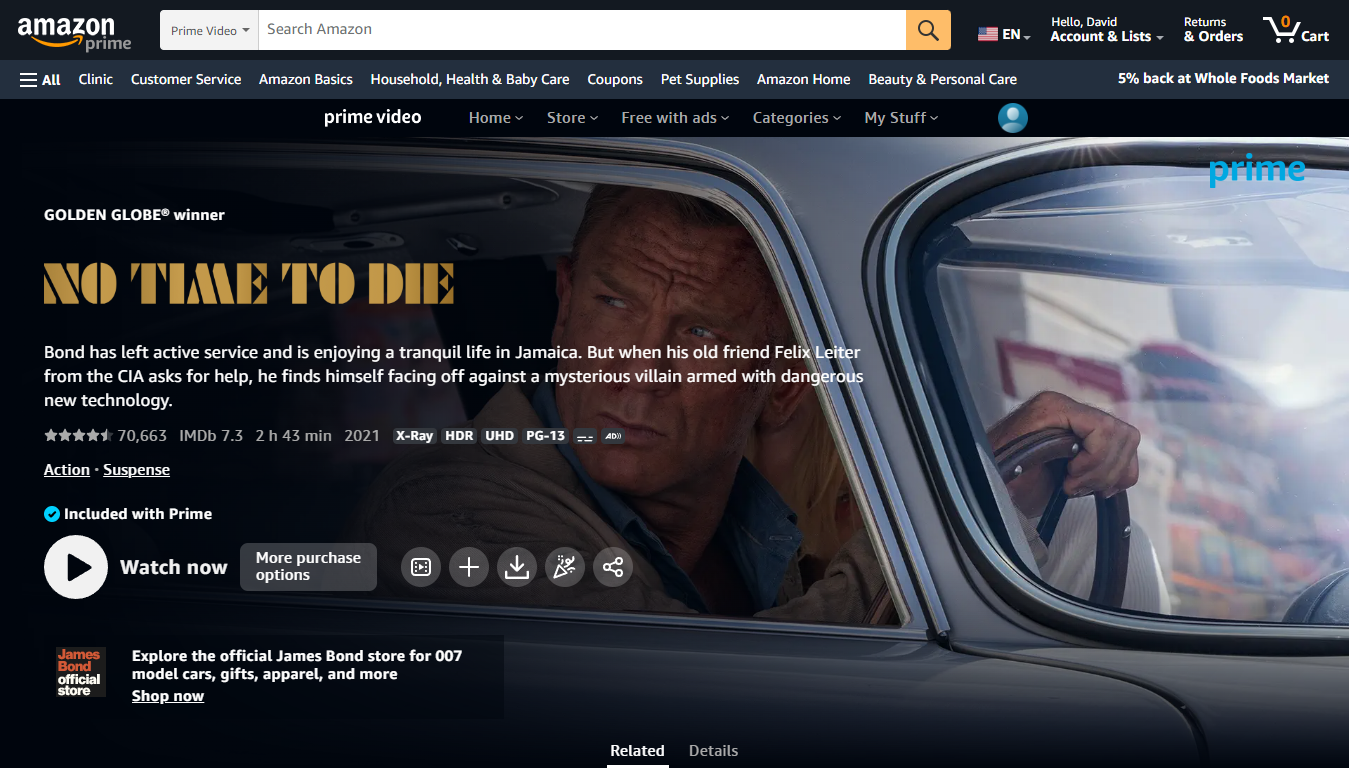Amazon Sets Up New Licensing Division; Rights to Franchises Like ‘James Bond,’ Prime Video Originals to be Sold
Amazon Sets Up New Licensing Division; Rights to Franchises Like ‘James Bond,’ Prime Video Originals to be Sold

“James Bond” fans who hoped the series had found a permanent home on MGM+ will be disappointed to learn that the films may not be there for long. According to Deadline, Amazon Studios is creating a new division for the sole purpose of making licensing deals with other media companies it is calling Amazon MGM Studios Distribution.
Overall, Amazon MGM Studios Distribution will oversee the rights to more than 4,000 film titles, and over 17,000 individual TV episodes. The division will focus on selling titles in “flexible bundles,” which will mean its customers will be more able to pick and choose which shows and movies they want the streaming rights to without having to take things they don’t want.
The division will be responsible for licensing some of the best-known movies Amazon and MGM currently own, including the “Bond” franchise, “Creed,” “Borat Subsequent Moviefilm,” “The Tomorrow War,” and more. On the television side, Amazon MGM Studios Distribution will also sell the rights to shows like “Hunters and “The Marvelous Mrs. Maisel.” Hulu may have to say goodbye to “The Handmaid’s Tale” in the near future; Amazon owns the distribution rights to that show, and if Hulu is outbid for the show, it may disappear from the service.
The move marks the first time that shows like “The Marvelous Mrs. Maisel” and other Amazon Originals might be syndicated elsewhere. This factor, combined with the flexible bundling ability Amazon will offer will make its new licensing division highly successful, according to its leader and longtime MGM distribution lead Chris Ottinger.
“Pioneering the distribution of Amazon Originals for Amazon Studios is an exciting opportunity to bring fresh, never-before available quality content to audiences around the globe,” Ottinger said. “In doing so, we will break through the current sales mold by creating custom packages that will fulfill our client’s individual content needs.”
Amazon is just the latest major media outlet to start licensing out its popular franchises in order to generate a new revenue stream. Warner Bros. Discovery started selling the rights to big-name shows like “Westworld” to free streaming platforms such as Tubi and The Roku Channel in order to maximize their revenues after removing them from HBO Max. The company said last week that more such licensing agreements could come this year, while it attempts to determine which properties it will keep for a free, ad-supported streaming platform of its own.
Disney has also signified a willingness to license some content, though it will keep core franchises like Marvel and Star Wars on Disney+. It has not started licensing titles to third parties yet, but Disney is actively looking for any methods possible to bring down streaming losses that still exceed more than $1 billion every quarter.
Amazon does not report financial results publicly in the same way Disney does, so it’s hard to say whether it needs a big influx of revenue from its new Amazon MGM Studios Distribution division. But fans of big-name franchises owned by MGM and Amazon should prepare themselves to see those titles appearing on other streaming services in the next few years.
-
Amazon Prime Video
Amazon Prime Video is a subscription video streaming service that includes on-demand access to 10,000+ movies, TV shows, and Prime Originals like “The Lord of the Rings: The Rings of Power,” “Jack Ryan,” “The Marvelous Mrs. Maisel,” “The Boys,” and more. Subscribers can also add third-party services like Max, Showtime, STARZ, and dozens more with Amazon Prime Video Channels. Prime Video also offers exclusive live access to NFL Thursday Night Football.
-
MGM+ App
MGM+ is a video streaming service that features original TV shows like the Emmy-winner “Godfather of Harlem,” the romantic adventure “Billy the Kid,” the contemporary sci-fi horror thriller “FROM,” and dramas “Rogue Heroes” and “Belgravia.” The service also has a library of Hollywood movies. This same service was previously called EPIX NOW.


